|
The accidental release by the Los Angeles Police Department of thousands of officers’ photo headshots – including, inadvertently, those of police working undercover – has resulted in a spiderwebbing series of hostile legal actions drawing in the LAPD, an angry police union, an even angrier group of undercover officers, press advocates, City Attorney Heidi Feldstein Soto, and Mayor Karen Bass. Finger pointing abounds. Yet, the party arguably at the center of the controversy is Knock LA journalist Ben Camacho, now being sued by the city to recover the costs of its own clerical error.
Camacho received the photos in 2022 pursuant to a California Public Records Act request. While the LAPD initially fought back against providing headshots of active-duty officers, they eventually capitulated following a settlement agreement in which they assented to providing all available photos except for those of officers serving in an undercover capacity. Except, they provided those, too. Soon after, at least two groups of police officers sued the LAPD. And in April, the LAPD filed suit against Camacho to prevent publication of the more than 9,300 images. That’s where press advocates came into the picture. As the Reporters Committee for Freedom of the Press pointed out in its amicus brief, “the Supreme Court of the United States has long recognized prior restraints as the ‘most serious and the least tolerable infringement on First Amendment rights’ because they are ‘an immediate and irreversible sanction’ not only ‘chill[ing]’ speech but also ‘freez[ing]’ it, at least for a time. This constitutional harm is magnified when the government seeks the removal of already published information.” Indeed, the Court has on multiple occasions made it clear that when the government releases information, even if accidentally, it can’t then attempt to gag the press to prevent publication. That established legal reasoning apparently didn’t sway the Los Angeles Superior Court, which ruled for the City of Los Angeles. Camacho has since appealed. Another twist in this saga occurred more recently when the city sued Camacho for indemnification. As Freedom of the Press Foundation advocacy director Seth Stern said, the “city has hit the trifecta of anti-press First Amendment violations: first, demanding journalists give back documents the government released, second, censoring journalists from publishing information, and now, holding journalists financially liable for truthful publications ...” State intimidation of the press is nothing new, but it seems to be taking on a troubling new tenor. At Protect The 1st, we’ve documented a series of recent efforts by power-drunk officials to punish reporters for committing acts of journalism. In Alabama, a small town publisher and reporter were arrested for reporting on a grand jury leak about the alleged mishandling of COVID relief funds. In Kansas, police raided the Marion County Record in an effort to track down an informant who revealed information about a local restauranteur’s DUI. In that instance, the paper’s 98-year-old co-owner died a day after her home was raided. The LAPD debacle is further evidence of declining respect for the First Amendment and a free press. The City of Los Angeles should cease its legal gesticulating, own up to its mistake, and move on. Honest reporters should not pay for government slip-ups. Most reporters aspire to superlatives like “dogged,” “tenacious,” and “persistent.” In Calumet City, Illinois, such traits are seen by some as a liability. In fact, they can you ticketed. That’s what happened recently to Daily Southtown reporter Hank Sanders, who was cited for “interference/hampering of city employees” after sending 14 emails over a nine-day span to a handful of city officials seeking comment about flooding in the small town.
Sanders had previously reported that outside consultants told Calumet City officials that their stormwater infrastructure was in poor condition prior to historic flooding that occurred in September. Subsequently, Sanders continued his efforts to get to the bottom of the story – which apparently did not sit well with city officials like Mayor Thaddeus Jones, who was listed as a complainant on Sanders’ citation. Likewise, Sanders’ persecution at the hands of smalltown city officials didn’t sit well with the editorial board of the Chicago Tribune (which shares a parent company with the Daily Southtown). In an editorial, they called the city’s behavior “clownish.” Executive editor Mitch Pugh went a bit further: “[Calumet City’s actions] represent a continued assault on journalists who, like Hank, are guilty of nothing more than engaging in the practice of journalism. From places like Alabama to Kansas to Illinois, it appears public officials have become emboldened to take actions that our society once viewed as un-American. Unfortunately, in our current political climate, uneducated buffoonery has become a virtue, not a liability, but the Tribune will vigorously stand up for Hank’s right to do his job.” There is no room to be dismissive of this event. It is yet another recent example in a worrying trend in small-town America where power-drunk officials attempt to punish reporters for committing the act of journalism. One instance to which Pugh refers we recently wrote about: a small town publisher and reporter were arrested in Alabama for reporting on a grand jury leak about the alleged mishandling of COVID relief funds in a local school district. The other we wrote about in August – police in Kansas raided the Marion County Record in an effort to track down an informant who revealed information about a local restauranteur’s DUI. In that instance, the paper’s 98-year-old co-owner died a day after her home was raided. The Calumet City controversy has a happier ending. On Nov. 6, the city attorney – who seems roundly embarrassed by the whole ordeal – sent a letter to Tribune lawyers dropping the citation. And the Tribune itself seems to be enjoying a deserved bout of schadenfreude over the city’s capitulation. The trend line, however, is declining respect for the First Amendment and a free press. Reporters must feel free to pursue stories of public interest without fear of reprisal. Sanders himself perhaps put it best: “I will continue to be reaching out to the correct department or employee for comment when I want a comment from that department or employee. To do otherwise is unethical.” Forbids Newspaper from Reporting on Crime, Seizes Cellphones from School Board Members and Publisher Much digital ink has been spilled about the arrest of a small-town publisher and reporter in Atmore, Alabama, for reporting on a grand jury leak about the alleged mishandling of COVID relief funds in the local school district. But events surrounding the arrests of these two journalists should be of even greater concern to First Amendment advocates.
While Alabama law makes it a crime for grand jurors, witnesses, and others directly involved in a grand jury proceeding to disclose information from these secret hearings, this prohibition does not include journalists. Moreover, a long line of U.S. Supreme Court precedents, harking back to the Pentagon Papers, make it clear that journalists can report leaks, even when the leak is illegal. This is judged necessary for freedom of the press. Time and again, such reporting has broken loose the logjam of secrecy, incompetence, and inside-dealing that often hardens inside powerful institutions. But the plain facts and the law did not stop Escambia County District Attorney Stephen Billy from charging Atmore News publisher Sherry Digmon and reporter Don Fletcher with a felony charge of reporting grand jury information, carrying a penalty of between one to three years imprisonment and a fine of $5,000. Worse, from a constitutional perspective, are bail terms that prohibit the journalists from reporting on “ongoing criminal investigations.” In this one brilliant move, District Attorney Billy ventured from criminalizing reporting into the worst offense against free speech – prior restraint. “The bail terms would be unconstitutional even if they only restricted the journalists from further reporting on the grand jury investigation of the school district, especially when there was no legal or constitutional basis to punish that reporting in the first place,” said Seth Stern, director of advocacy at the Freedom of the Press Foundation. “That overbreadth turns an already flagrantly unconstitutional gag order into a fundamentally un-American attempt at retaliatory censorship to silence the free press. Everyone involved should be ashamed of themselves.” The Atmore News today posts a straightforward, factual account of the arrests of its publisher and reporter. Could that be construed by the district attorney as a bail violation? It is not clear. And when legal standards are not clear, the free practice of journalism suffers. In a separate action, District Attorney Billy dispatched sheriff’s deputies with search warrants to seize the cellphones of four members of the Escambia County Board of Education who voted not to renew the contract of the local school superintendent. One of the board members was publisher Sherry Digmon. The stated purpose of the raid was to investigate a possible telephone violation of Alabama’s Open Meetings Law by the four board members, even though violations are a civil matter under Alabama law. It is not a crime. It would be easy to dismiss this case as an outlier by a bumbling local district attorney. As the Dude says in The Big Lebowski, “this aggression will not stand, man!” It is all but certain District Attorney Billy and his case will not fare any better than did that of the small-town police chief in Kansas who raided the local newspaper and seized all its equipment over the reporting of a local businesswoman’s DUI record. But even when intimidation fails, the hassle and embarrassment of an arrest and the confiscation of phones and equipment cannot be far from the minds of local journalists these days. That such cases are beginning to pop up around the country is one more sign that America is drifting away from our constitutional moorings. Happy World Press Freedom Day! If you are a journalist heading out to do an interview, please be careful in your movements, your digital security, and the protection of your sources. In some countries, you might want to check under your car before starting the ignition.
But be advised that even these safety measures may not be enough to protect you. Like many declarations of the United Nations, the 30th anniversary of World Press Freedom Day is observed in the breach in many UN member countries. The UN Secretary General Antonio Guterres said that the number of journalists killed in 2022 was 50 percent higher than the previous year. UNESCO reports that in all, 86 journalists were killed last year. That’s a reporter killed every four days. In Mexico, where many journalists have been murdered, the government and the cartels are the most prolific users of Pegasus, surveillance software that can transform any smartphone into a comprehensive 24/7 surveillance device. This spyware reveals one’s texts, emails, images, and calendar, while turning a smartphone’s microphone and camera against its owner. The New York Times reports that Mexico’s federal spy agency has “targeted more cellphones with the spyware than any other government agency in the world.” And, of course, criminal actors have full use of this technology in much of the world. Cartels used Pegasus to track down journalist Cecilio Pineda Birto hours after he accused the state police force and local politicians of conspiring with violent criminals. He was gunned down while waiting for his car to come out of a carwash. Twenty-six Mexican journalists were targets of interest by a buyer of this technology in recent years. This is in keeping with Secretary Guterres’ statement that “90 percent of the journalists killed” are “covering local issues, human rights violation, corruption, illegal mining, environment problems.” He added that many of the killers “are not only state actors, they are organized crime, drug lords, environmental criminals.” In some parts of the world, the line between state actors and thuggery is nonexistent. Witness the ordeal of Evan Gershkovich of The Wall Street Journal, arrested on specious charges of being an American spy by the judicial puppets of the Vladimir Putin regime. Or Jimmy Lai, the Hong Kong publisher who bravely defied the Chinese Communist Party and has disappeared behind bars. In other parts of the world, journalists are intimidated by online attacks and loose libel laws that keep journalists legally and psychologically intimidated. Throughout, the marriage of increasingly potent surveillance technology and illiberal regimes is making the practice of journalism more difficult. This is true even in the United States. A Texas journalist was arrested for – get this – “misuse of official information.” A Wall Street Journal reporter in Arizona was arrested for doing man-on-the-street interviews. The press can often come at the truth with a slant or a sensational angle. The press can just get a story wrong. But the free and open practice of journalism is in the long run the only way for a free society to self-correct and sift out the truth. As the founders insisted, freedom of the press safeguards society against official corruption, malfeasance, and the lawless exercise of power. While 49 U.S. states have press shield laws, there is no federal law that protects the notes and sources of a journalist from being seized by a federal prosecutor. All the more reason to celebrate World Press Freedom in America by asking Congress to get behind the PRESS Act, which would extend these basic protections to the federal government. Prosecutors in Asheville, North Carolina, are insisting on pressing forward with the prosecution of two journalists for daring to document a police sweep of a homeless encampment.
Matilda Bliss and Veronica Coit were arrested and charged for trespassing on Christmas night, 2021. Their crime? They stood on a rise above the scene in a city park after the park’s 10 p.m. closing time. By the admission of all, the journalists could not have seen the eviction, must less filmed it, from a public sidewalk or lower down in the park. They were where they needed to be to document this story. On April 19, Bliss and Coit were finally convicted of trespassing in a bench trial. They are now exercising their rights to appeal their case before a jury. The U.S. Press Freedom Tracker, which maintains data on press freedom violations, reveals that this is only the fourth such trial in the United States in the last five years. The Tracker has no record of a journalist being sentenced to jail or probation for trespassing since it began documenting the arrests of journalists in 2017. Concerned about the chilling effect such prosecutions have on a free press, Protect The 1st joined with a coalition of civil liberties organizations, in a letter organized by the Freedom of the Press Foundation, to protest these prosecutions to the Asheville city attorney, the police chief, and the Buncombe County district attorney. The letter states that “a government interested in transparency should not want to set a precedent that journalists cannot cover newsworthy events, in plain sight and on public land, at night. “The news does not keep regular business hours and citizens are entitled to know what police are doing at any hour.” The actions of local officials and statements by police, caught on body-cam footage, show no love lost for The Asheville Blade. It is easy to see why. The Blade advertises itself as “a leftist local news co-op focusing on hard-hitting journalism, in-depth investigation and sharp views from our city.” The Blade’s critical eye may make it the bête noir of city and law enforcement officials. But having a point of view doesn’t make this news outlet any less of a journalistic enterprise than the National Review or The Nation. “The continued prosecution of the two Asheville Blade reporters sends a message that authorities can cherry-pick who qualifies as a journalist based on personal preference,” the letter concludes. Protect The 1st will follow the case and report on the outcome of the appeal. Last year, Sens. Ron Wyden and Martin Heinrich revealed that the Department of Homeland Security had tracked millions of wire money transfers by Americans. Now, thanks to a Freedom of Information Act request from WIRED, we’ve learned of a legal tool used by another part of DHS, Immigration and Customs Enforcement (ICE), to extract data from elementary schools, news organizations, and abortion clinics.
Called 1509 customs summonses, these requests are authorized by law to be used in criminal investigations about illegal imports or unpaid customs duties. WIRED examined ICE’s subpoena tracking database and found agents issued more than 170,00 customs summonses from the beginning of 2016 through August 2022. Congress granted this power to ICE to allow it to efficiently follow up on customs issues without having to wait for a warrant from a judge. Among the targets of ICE customs summonses are a youth soccer league, surveillance video from a major abortion provider in Illinois, student records from an elementary school in Georgia, health records from a state university’s student health service, data from three boards of elections or election departments, and data from a Lutheran organization that aids refugees. WIRED reports: “In at least two instances, agents at ICE used the custom summons to pressure news organizations to reveal information about their sources.” In 2017, ICE had also illegally used a custom summons to try to force Twitter to reveal the owner of an anonymous account. ICE spokesmen told WIRED that there were reasonable explanations for these requests, including investigations into the spread of child sex abuse material. But many civil liberties observers are skeptical of any claim made by federal agencies. ACLU’s Nathan Freed Wessler said that without access to the underlying subpoenas, there is no way to tell if ICE had abused its authority. This is a clear case where Congressional oversight is mandatory. The House and Senate Judiciary Committees must investigate the rationales for these customs summonses – especially those that were aimed at news organizations. And they should take the next step by passing the PRESS Act to protect journalists from being compelled by federal prosecutors to reveal their sources. Arrest of Wall Street Journal Reporter by Phoenix Police Reveals Arizona’s First Amendment Hang-ups1/12/2023
Last year, Attorney General Merrick Garland announced an investigation into whether the Phoenix Police Department “engages in a pattern or practice of violations of the Constitution or federal law.”
As if to say, “I resemble that remark,” a Phoenix police officer was recently revealed by local TV news as having handcuffed a Wall Street Journal reporter doing man-on-the-street interviews with customers in front of a bank. “No journalist should ever be detained simply for exercising their First Amendment rights,” The Journal reacted to this event in a public statement. The reporter, Dion Rabouin, was approached by bank executives but was not asked to leave the premises. When confronted by a Phoenix Police officer, Rabouin offered to leave – which was appropriate, given that he was on private property. But Rabouin was handcuffed nevertheless. No less important, a bystander who recorded the incident on a video phone was ordered to stop by the police officer. “You wanna get arrested as well?” the police officer asked. There are several important takeaways from this incident. First, the officer had no authority to tell the bystander to quit filming. Last summer, we reported on Arizona’s space-squeezer law on citizens’ right to record the police. The law was an Arizona statute that allowed police to charge citizens who record them within eight feet, or who don’t stop recording when told to do so by an officer, with a misdemeanor. News organizations protested that this prohibition would easily dragoon protestors and news photographers on the move in an active protest. But later in the year, a federal judge blocked the law, and the Arizona legislature declined to defend it. The arrest of the reporter that was recorded by the bystander demonstrates the need to respect citizens’ right to record. Second, this incident is Exhibit A in a pattern identified by the Reporters Committee for Freedom of the Press that there is an “alarming number of incidents we’ve seen over the last several years where police have detained, arrested, or assaulted journalists who were doing their jobs.” Witness the treatment of local Laredo, Texas, news blogger Priscilla Villarreal (aka “La Gordiloca”), who was arrested and humiliated in a police station for “misuse of official information.” Villarreal did beat the rap in court, but she did not beat the ride, enduring jeers and insults as she went through the booking process. The Freedom of the Press Association recently reported that two North Carolina reporters who were filming an eviction of people from a homeless encampment were arrested after police instructed the crowd to disperse. Police seized one of the reporters’ phone, even though she identified herself as a reporter. “Regardless of the outcome, the fact that these charges were even filed, let alone brought to trial, is an affront to press freedoms, and everyone involved should be ashamed,” wrote Seth Stern of the Freedom of the Press Association. “The First Amendment requires the government to let reporters gather news firsthand – not rely on self-serving spin from official sources. Courts tolerate restrictions on reporters’ access to public land only in exceptional circumstances, like serious public safety risks, and then restrictions must be narrow enough to avoid unduly interfering with newsgathering.” In the DOJ’s Arizona investigation, the department says it is interested in investigating the Phoenix PD for violating “conduct protected by the First Amendment.” The Phoenix New Times – a long-time critic and bête noir of the local police – reports that DOJ may be interested in exploring overly aggressive use of rubber bullets and tear-gas against protestors, as well as the alleged targeting of activists for arrest and smearing them as gang members. These concerns should lead Congress to renew and pass the PRESS Act, which would bar prosecutors, except in exigent circumstances, from requiring the revelation of the notes and sources of journalists in court – as 49 states already do. While this law curbs the actions of prosecutors, not police, and does so in court, not on the streets, the impulse of authorities to suppress the press is the same. So is the need to protect one of the most sacred guarantees of the First Amendment: freedom of the press. Protect The 1st praised the Tenth Circuit Court of Appeals for its reversal last week of a long-standing refusal to acknowledge a First Amendment right-to-record the police when they are going about their official duty. Just a few days before, however, the State of Arizona moved in the opposite direction by placing new restrictions on the right to record.
The new law allows police to charge people with a misdemeanor who record them from within eight feet. The law does make exceptions that include those in a vehicle or enclosed structure. But critics still call the law overly broad and note the importance of citizen recording, especially when police bodycams go on the fritz. The general counsel of the National Press Photographers Association says the law is “unworkable” because moving events like protests can bring journalists in and out of the eight-foot-range. An attorney with the ACLU in Arizona, K.M. Bell, told NPR: “This is content-based restriction, because I can stand three feet away from an officer and play Angry Birds, but I can’t stand three feet away and record them.” Civil liberties advocates say that they will likely challenge the law in court when the first person is charged after the law takes effect on Sept. 24, 2022. |
Archives
June 2024
Categories
All
|
ABOUT |
ISSUES |
TAKE ACTION |



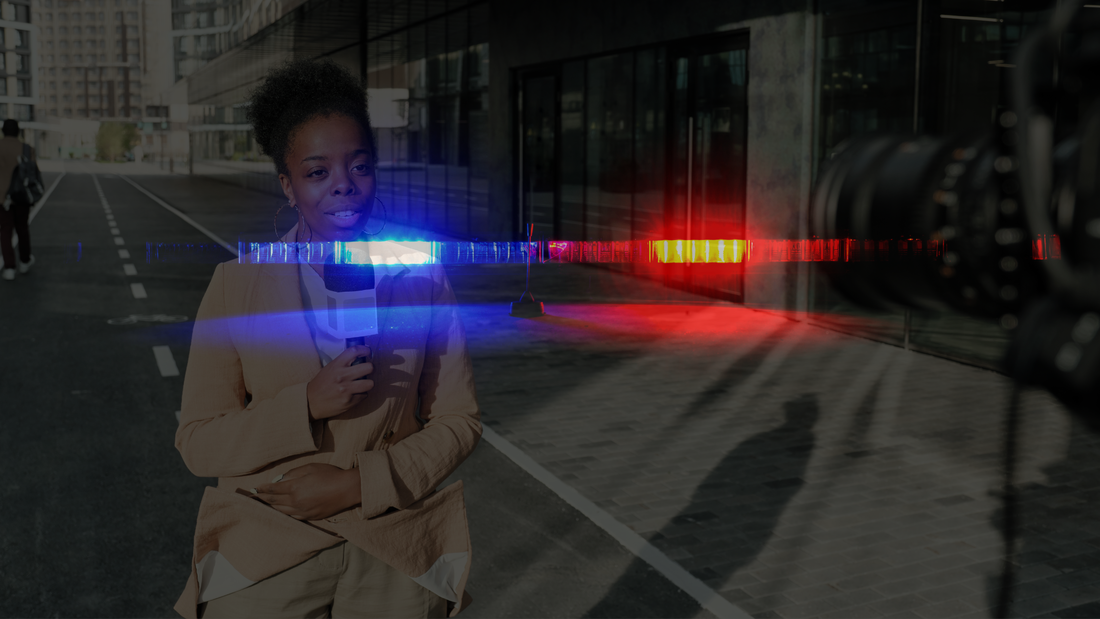


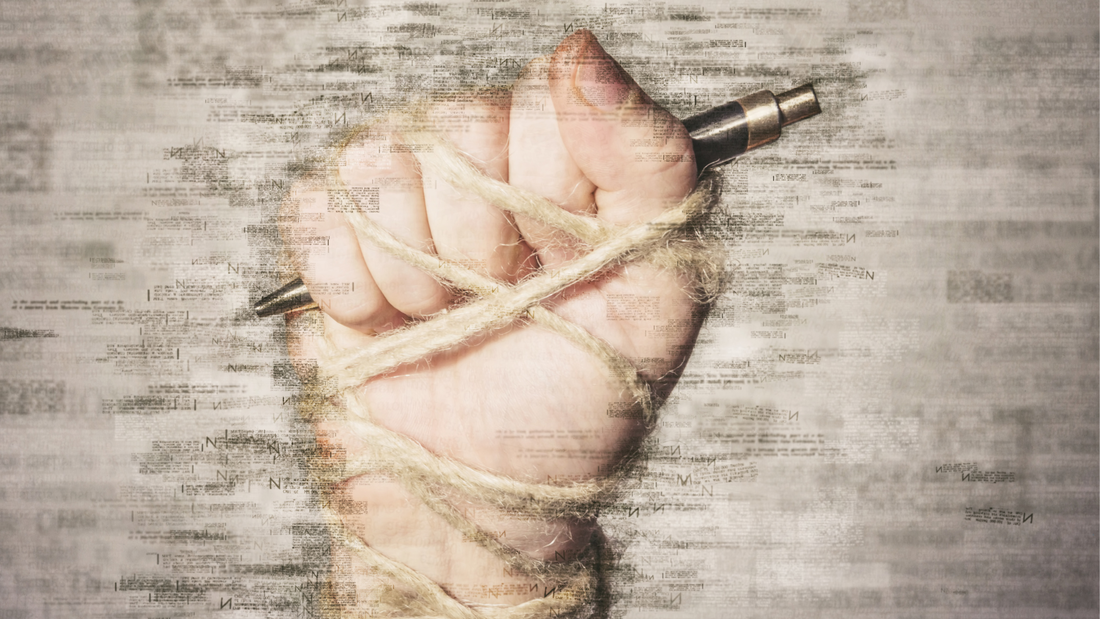
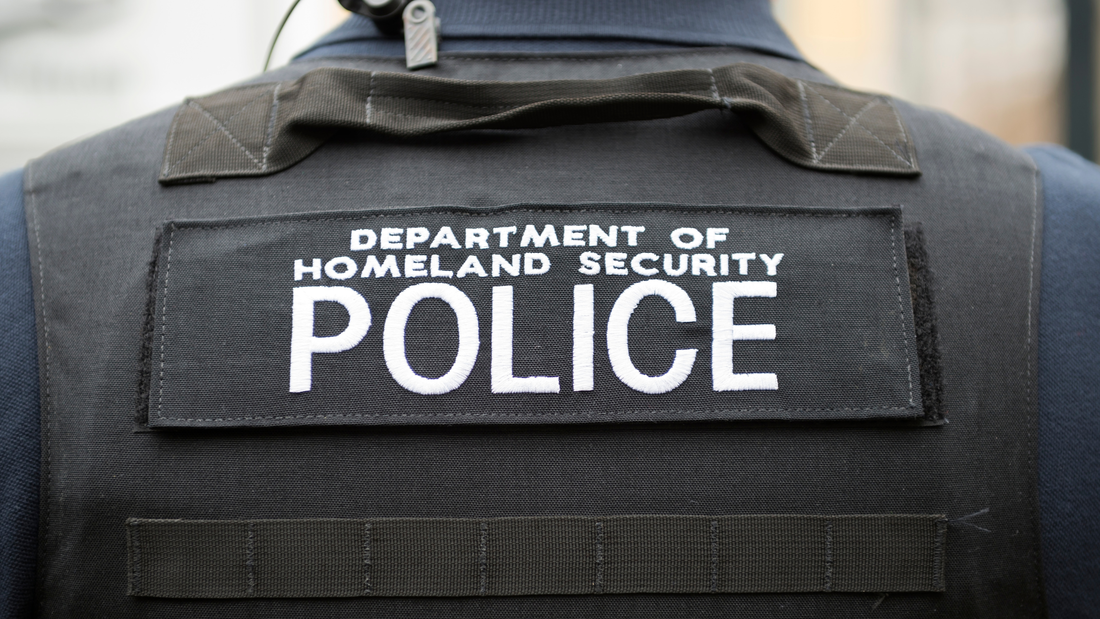
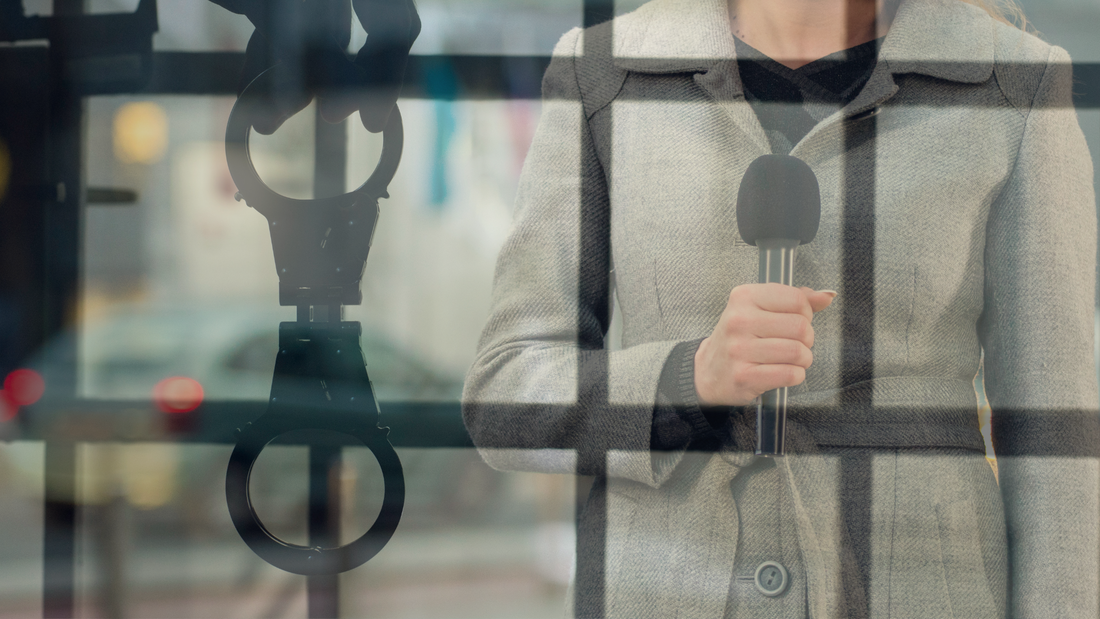
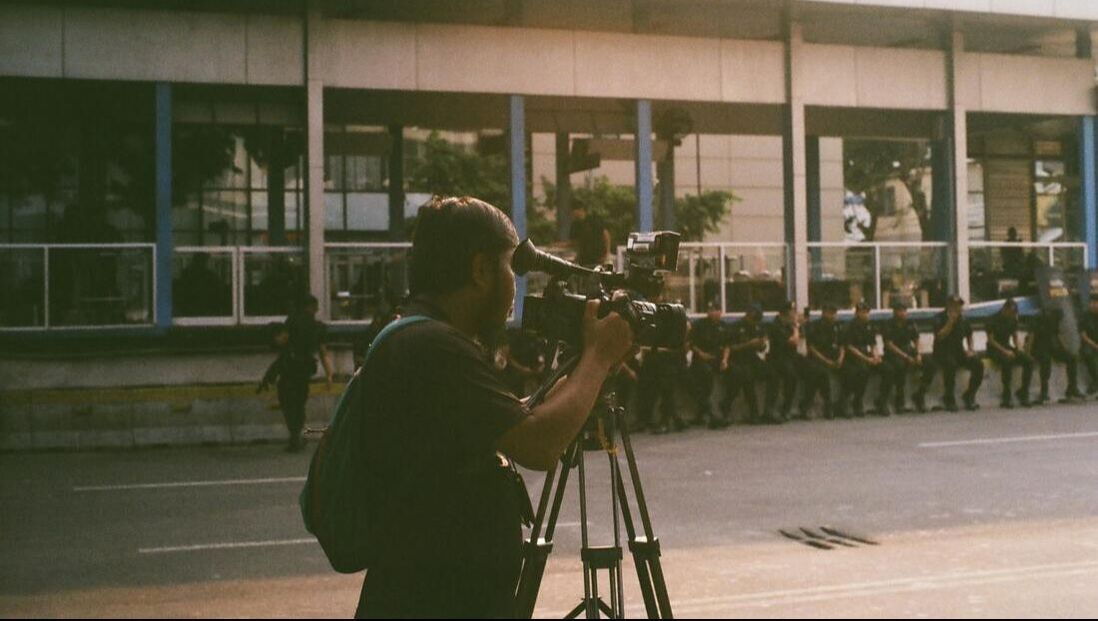
 RSS Feed
RSS Feed